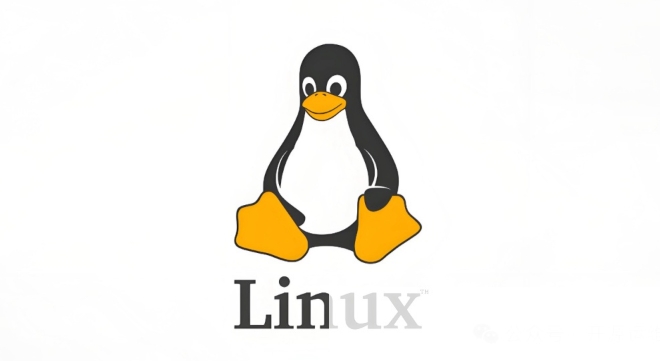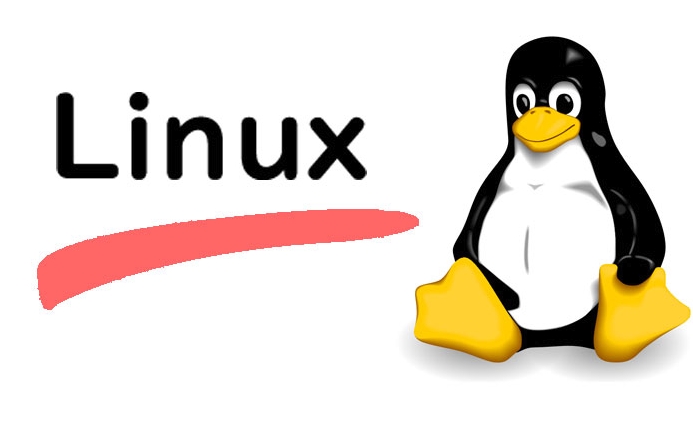The best Linux distros for programmers are: 1. Ubuntu for its balance of ease-of-use and powerful development support with extensive documentation and community backing; 2. Fedora Workstation for developers seeking cutting-edge tools and strong container/cloud integration, especially in Red Hat ecosystems; 3. Arch Linux for advanced users who want full system control and a deep understanding of Linux internals through a minimalist, rolling-release setup; 4. Debian for unmatched stability and reliability, ideal for production and research environments despite older package versions; 5. Pop!_OS for a modern, GPU-optimized experience with excellent workflow enhancements, particularly suited for ML/AI and data science developers; with additional options like Linux Mint, openSUSE Tumbleweed, and Alpine Linux catering to specific needs such as familiarity, system administration, or lightweight container use—choosing the right one depends on experience level, project requirements, and workflow preferences, and testing via VM or dual-boot is recommended to find the optimal fit.

If you're a programmer looking for a reliable, efficient, and developer-friendly operating system, Linux is a top choice. But with so many distributions out there, picking the right one can be overwhelming. The best Linux distro for programmers isn't about flashy features—it's about stability, package availability, community support, and tools that streamline development. Here are the top choices that consistently stand out.

1. Ubuntu – The Go-To for Beginners and Pros Alike
Ubuntu remains one of the most popular Linux distributions—and for good reason. It’s user-friendly, well-documented, and backed by a massive community.
-
Why it’s great for programmers:

- Huge software repository with support for nearly every programming language and tool (Python, Node.js, Ruby, Go, etc.).
- Excellent support for Docker, Kubernetes, and cloud development.
- Long-Term Support (LTS) versions offer 5 years of updates, ideal for stable dev environments.
- Works seamlessly with VS Code, JetBrains IDEs, and other dev tools.
Best for: Developers who want a balance of ease-of-use and power, especially those new to Linux or working in web/cloud development.
Ubuntu also plays well with WSL (Windows Subsystem for Linux), making it a solid choice if you're transitioning from Windows.

2. Fedora Workstation – Cutting-Edge with Developer Focus
Fedora is sponsored by Red Hat and known for delivering the latest open-source technologies quickly.
-
Why it’s great for programmers:
- Ships with the newest versions of GCC, Python, Ruby, and other dev tools.
- Strong support for container development (Podman, Buildah) and systemd integration.
- Comes with GNOME by default—a clean, modern desktop environment loved by many coders.
- Official "Fedora Developer Edition" includes pre-installed tools like PyCharm, Android Studio, and more.
Best for: Developers who want up-to-date packages and are comfortable with occasional system changes. Ideal for open-source contributors and those working with Red Hat ecosystems.
Fedora also integrates well with Red Hat OpenShift, making it a smart pick for enterprise and cloud-native development.
3. Arch Linux – Total Control for Advanced Users
Arch isn’t for everyone, but for programmers who want to build their system from the ground up, it’s unmatched.
-
Why it’s great for programmers:
- Rolling release model means you always have the latest software.
- The Arch User Repository (AUR) gives access to thousands of community-maintained packages.
- You install only what you need—perfect for a minimal, fast, and secure dev setup.
- Full control over system configuration helps you understand Linux internals better.
Best for: Experienced developers who value customization and learning. Great for those diving into system programming, kernel development, or DevOps.
Yes, it has a steep learning curve, but the knowledge you gain pays off in long-term flexibility.
4. Debian – Rock-Solid Stability
Debian is the foundation for Ubuntu and many other distros, prized for its reliability and strict open-source philosophy.
-
Why it’s great for programmers:
- Extremely stable—ideal for servers and long-running development environments.
- Massive package collection (over 59,000 packages).
- Perfect for backend, embedded, or security-focused development.
- Less frequent updates mean fewer breaking changes.
Best for: Developers who prioritize stability over new features—especially in production environments or academic/research settings.
The downside? Some packages may be older, so you might need to install newer language versions manually (e.g., via nvm, pyenv).
5. Pop!_OS – A Modern Alternative from System76
Built by System76, Pop!_OS is based on Ubuntu but optimized for developers and creators.
-
Why it’s great for programmers:
- Polished UI with tiling window support for better multitasking.
- Pre-configured for NVIDIA and AMD GPUs—great for ML/AI developers.
- Strong focus on developer workflows, including built-in keyboard shortcuts and workspace management.
- Excellent hardware compatibility, especially on System76 machines.
Best for: Developers who want a modern, aesthetically pleasing system without sacrificing Ubuntu’s compatibility.
It’s also a favorite among data scientists and machine learning engineers thanks to its GPU driver support.
Bonus: Other Notable Mentions
- Linux Mint: Great for developers coming from Windows, thanks to its familiar interface.
- openSUSE Tumbleweed: Rolling release with strong YaST configuration tools—ideal for sysadmins and full-stack devs.
- Alpine Linux: Lightweight and secure, often used in containers and CI/CD pipelines.
Choosing the right distro ultimately depends on your workflow, experience level, and project needs. Ubuntu and Pop!_OS are excellent starting points. Fedora and Arch appeal to those wanting newer tools or deeper control. Debian remains a timeless choice for stability.
Basically, try a few in a VM or dual-boot setup—your perfect dev environment is out there.
The above is the detailed content of The Best Linux Distributions for Programmers. For more information, please follow other related articles on the PHP Chinese website!

Hot AI Tools

Undress AI Tool
Undress images for free

Undresser.AI Undress
AI-powered app for creating realistic nude photos

AI Clothes Remover
Online AI tool for removing clothes from photos.

Clothoff.io
AI clothes remover

Video Face Swap
Swap faces in any video effortlessly with our completely free AI face swap tool!

Hot Article

Hot Tools

Notepad++7.3.1
Easy-to-use and free code editor

SublimeText3 Chinese version
Chinese version, very easy to use

Zend Studio 13.0.1
Powerful PHP integrated development environment

Dreamweaver CS6
Visual web development tools

SublimeText3 Mac version
God-level code editing software (SublimeText3)

Hot Topics
 Install LXC (Linux Containers) in RHEL, Rocky & AlmaLinux
Jul 05, 2025 am 09:25 AM
Install LXC (Linux Containers) in RHEL, Rocky & AlmaLinux
Jul 05, 2025 am 09:25 AM
LXD is described as the next-generation container and virtual machine manager that offers an immersive for Linux systems running inside containers or as virtual machines. It provides images for an inordinate number of Linux distributions with support
 How to create a self-signed SSL certificate using OpenSSL?
Jul 03, 2025 am 12:30 AM
How to create a self-signed SSL certificate using OpenSSL?
Jul 03, 2025 am 12:30 AM
The key steps for creating a self-signed SSL certificate are as follows: 1. Generate the private key, use the command opensslgenrsa-outselfsigned.key2048 to generate a 2048-bit RSA private key file, optional parameter -aes256 to achieve password protection; 2. Create a certificate request (CSR), run opensslreq-new-keyselfsigned.key-outselfsigned.csr and fill in the relevant information, especially the "CommonName" field; 3. Generate the certificate by self-signed, and use opensslx509-req-days365-inselfsigned.csr-signk
 7 Ways to Speed Up Firefox Browser in Linux Desktop
Jul 04, 2025 am 09:18 AM
7 Ways to Speed Up Firefox Browser in Linux Desktop
Jul 04, 2025 am 09:18 AM
Firefox browser is the default browser for most modern Linux distributions such as Ubuntu, Mint, and Fedora. Initially, its performance might be impressive, however, with the passage of time, you might notice that your browser is not as fast and resp
 How to troubleshoot DNS issues on a Linux machine?
Jul 07, 2025 am 12:35 AM
How to troubleshoot DNS issues on a Linux machine?
Jul 07, 2025 am 12:35 AM
When encountering DNS problems, first check the /etc/resolv.conf file to see if the correct nameserver is configured; secondly, you can manually add public DNS such as 8.8.8.8 for testing; then use nslookup and dig commands to verify whether DNS resolution is normal. If these tools are not installed, you can first install the dnsutils or bind-utils package; then check the systemd-resolved service status and configuration file /etc/systemd/resolved.conf, and set DNS and FallbackDNS as needed and restart the service; finally check the network interface status and firewall rules, confirm that port 53 is not
 How would you debug a server that is slow or has high memory usage?
Jul 06, 2025 am 12:02 AM
How would you debug a server that is slow or has high memory usage?
Jul 06, 2025 am 12:02 AM
If you find that the server is running slowly or the memory usage is too high, you should check the cause before operating. First, you need to check the system resource usage, use top, htop, free-h, iostat, ss-antp and other commands to check CPU, memory, disk I/O and network connections; secondly, analyze specific process problems, and track the behavior of high-occupancy processes through tools such as ps, jstack, strace; then check logs and monitoring data, view OOM records, exception requests, slow queries and other clues; finally, targeted processing is carried out based on common reasons such as memory leaks, connection pool exhaustion, cache failure storms, and timing task conflicts, optimize code logic, set up a timeout retry mechanism, add current limit fuses, and regularly pressure measurement and evaluation resources.
 Install Guacamole for Remote Linux/Windows Access in Ubuntu
Jul 08, 2025 am 09:58 AM
Install Guacamole for Remote Linux/Windows Access in Ubuntu
Jul 08, 2025 am 09:58 AM
As a system administrator, you may find yourself (today or in the future) working in an environment where Windows and Linux coexist. It is no secret that some big companies prefer (or have to) run some of their production services in Windows boxes an
 How to Burn CD/DVD in Linux Using Brasero
Jul 05, 2025 am 09:26 AM
How to Burn CD/DVD in Linux Using Brasero
Jul 05, 2025 am 09:26 AM
Frankly speaking, I cannot recall the last time I used a PC with a CD/DVD drive. This is thanks to the ever-evolving tech industry which has seen optical disks replaced by USB drives and other smaller and compact storage media that offer more storage
![Installation and Review of Q4OS Linux [Lightweight Distro]](https://img.php.cn/upload/article/001/242/473/175150507396452.jpg?x-oss-process=image/resize,m_fill,h_207,w_330) Installation and Review of Q4OS Linux [Lightweight Distro]
Jul 03, 2025 am 09:11 AM
Installation and Review of Q4OS Linux [Lightweight Distro]
Jul 03, 2025 am 09:11 AM
Q4OS is a new Linux distribution that’s based on Debian; a common base that’s shared with other distributions like Ubuntu and Linux Mint. It’s aimed at users who just want a simple, stable, easy to use Linux operating system that they can convenientl







